Berlin (1-2 April 2006) Part 1 - Museum Island and surroundings
Museum Island is named as such because of the number of museums on this island on the River Spree, on the grounds of the former Berlin City Palace. Most famous of these is the Altes Museum (Old Museum) which houses the Prussian Royal Family's art collection and built using the Doric Parthenon in Athens as a model.
In the nearby area, there is also the Berliner Dom, a Protestant cathedral built as a 116m-tall counterweight to St. Peter's Basilica in Rome. Bombed in the Second World War, it was reconstructed from 1975 to 1993 and is now a simplified version.
Nearby is also the Palast der Republik, which served as the main parliament building for the German Democratic Republic (GDR), more commonly known as East Germany. Built in 1970s on the grounds of the Berlin City Palace, demolished in 1950, it was found to be contaminated with asbestos and the German parliament voted in November 2003 to demolish the building.
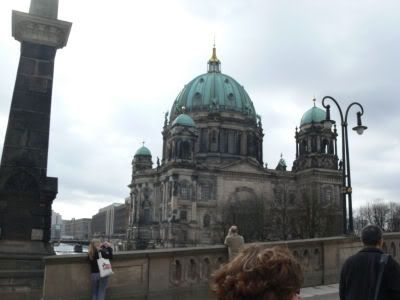
The Berliner Dom from a bridge
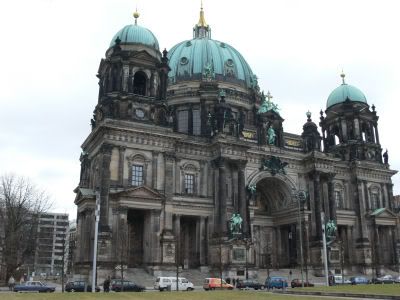
Berliner Dom from the side...
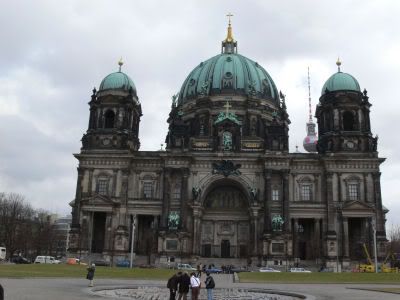
And up-front
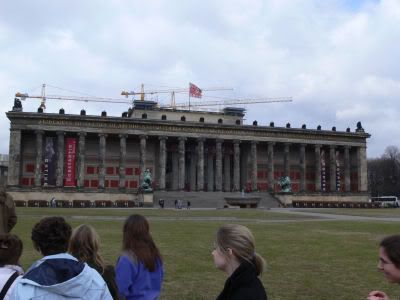
The Altes Museum
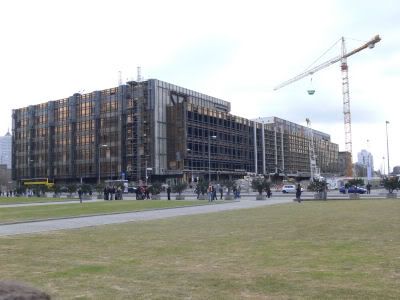
The Palast der Republik being demolished
Nearby, there is also the Humboldt-Universität zu Berlin, home to many famous academics like Albert Einstein, Max Planck, Karl Marx and 29 Nobel Prize winners. However, I think it is more famous for being the site of the book-burning parade held by the Nazis on 10 May 1933. An empty library remains as a monument with the famous words by Heinrich Heine in 1820: "Das war ein Vorspiel nur, dort wo man Bücher verbrennt, verbrennt man am Ende auch Menschen" ("That was only a prelude; where they burn books, they ultimately burn people").
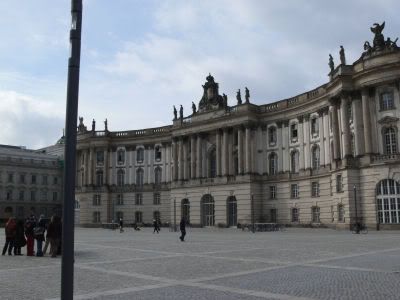
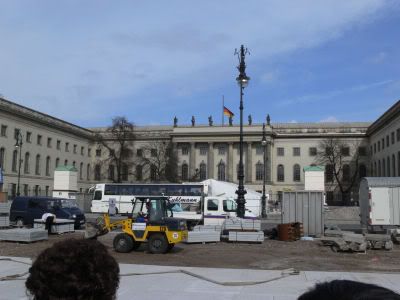
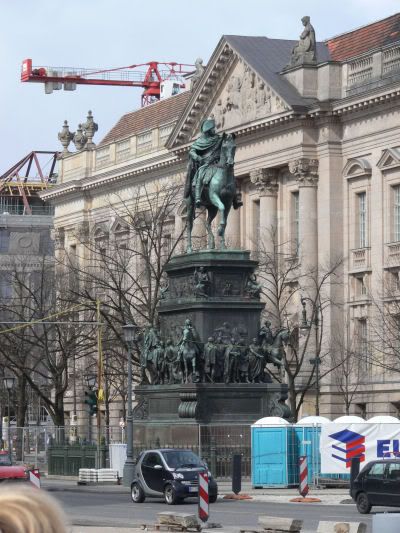
Statue of Friedrich the Great entering the city
Further down the road is the Gendarmenmarkt, one of the most beautiful squares in Berlin. It is surrounded by a concert hall, a German cathedral and a French cathedral. Initially 2 different buildings, both were touched up to look like twins, although major differences can still be seen.
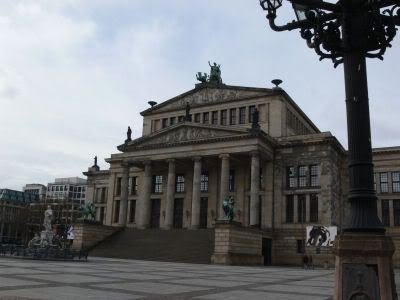
The concert hall
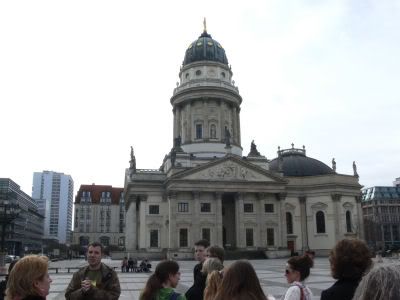
The German cathedral
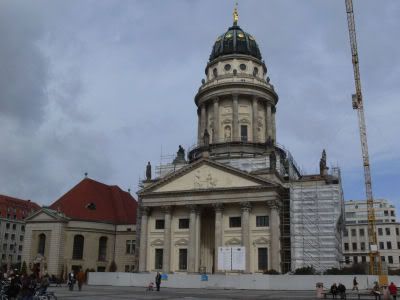
The French cathedral
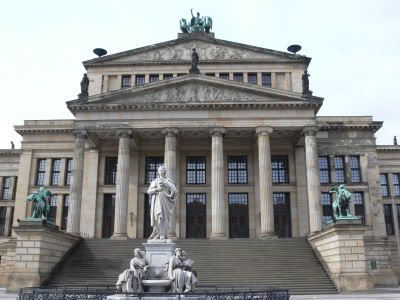
Statue of the famous poet Friedrich Schiller in front of the Concert Hall
In the nearby area, there is also the Berliner Dom, a Protestant cathedral built as a 116m-tall counterweight to St. Peter's Basilica in Rome. Bombed in the Second World War, it was reconstructed from 1975 to 1993 and is now a simplified version.
Nearby is also the Palast der Republik, which served as the main parliament building for the German Democratic Republic (GDR), more commonly known as East Germany. Built in 1970s on the grounds of the Berlin City Palace, demolished in 1950, it was found to be contaminated with asbestos and the German parliament voted in November 2003 to demolish the building.

The Berliner Dom from a bridge

Berliner Dom from the side...

And up-front

The Altes Museum

The Palast der Republik being demolished
Nearby, there is also the Humboldt-Universität zu Berlin, home to many famous academics like Albert Einstein, Max Planck, Karl Marx and 29 Nobel Prize winners. However, I think it is more famous for being the site of the book-burning parade held by the Nazis on 10 May 1933. An empty library remains as a monument with the famous words by Heinrich Heine in 1820: "Das war ein Vorspiel nur, dort wo man Bücher verbrennt, verbrennt man am Ende auch Menschen" ("That was only a prelude; where they burn books, they ultimately burn people").



Statue of Friedrich the Great entering the city
Further down the road is the Gendarmenmarkt, one of the most beautiful squares in Berlin. It is surrounded by a concert hall, a German cathedral and a French cathedral. Initially 2 different buildings, both were touched up to look like twins, although major differences can still be seen.

The concert hall

The German cathedral

The French cathedral

Statue of the famous poet Friedrich Schiller in front of the Concert Hall

0 Comments:
Post a Comment
<< Home